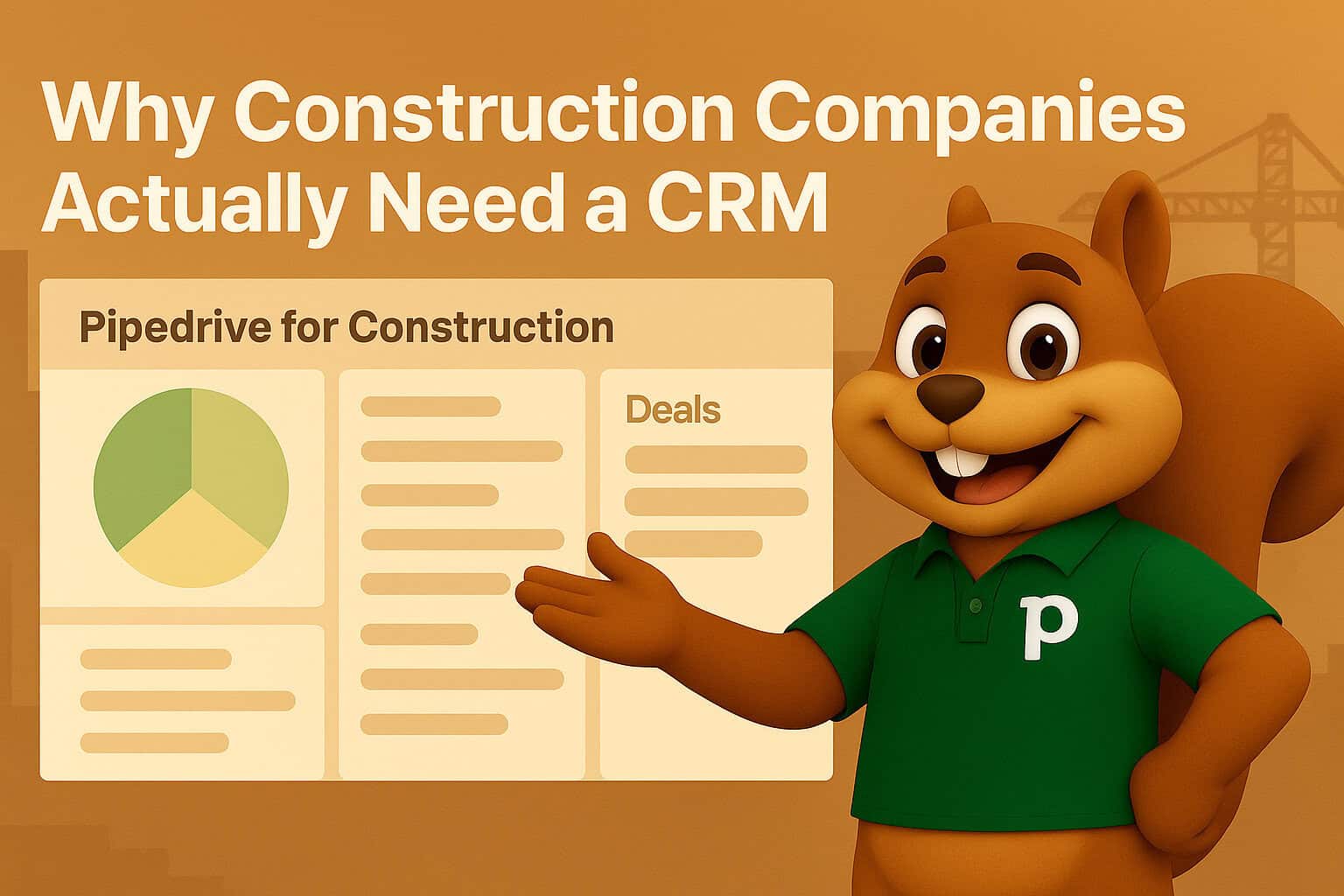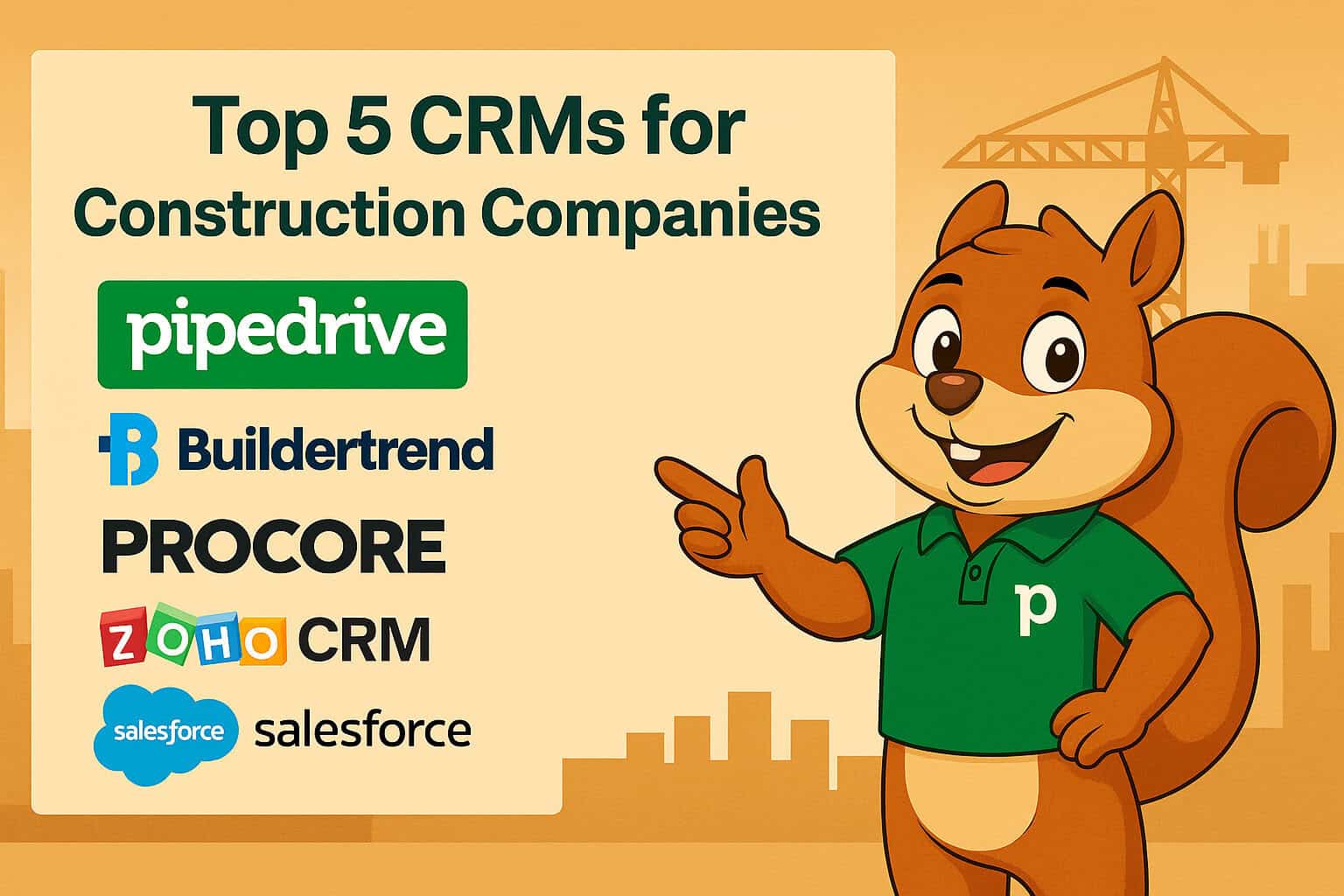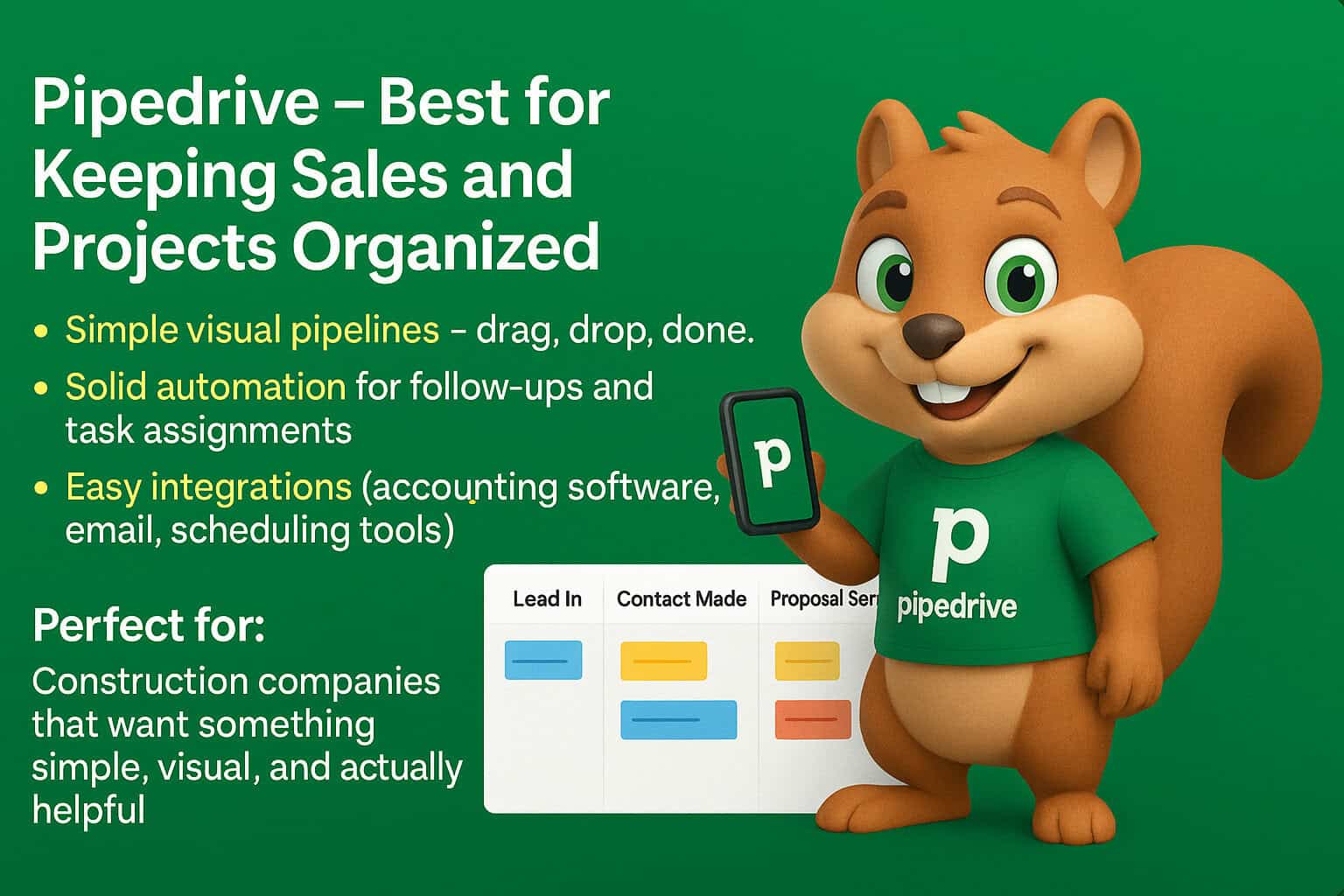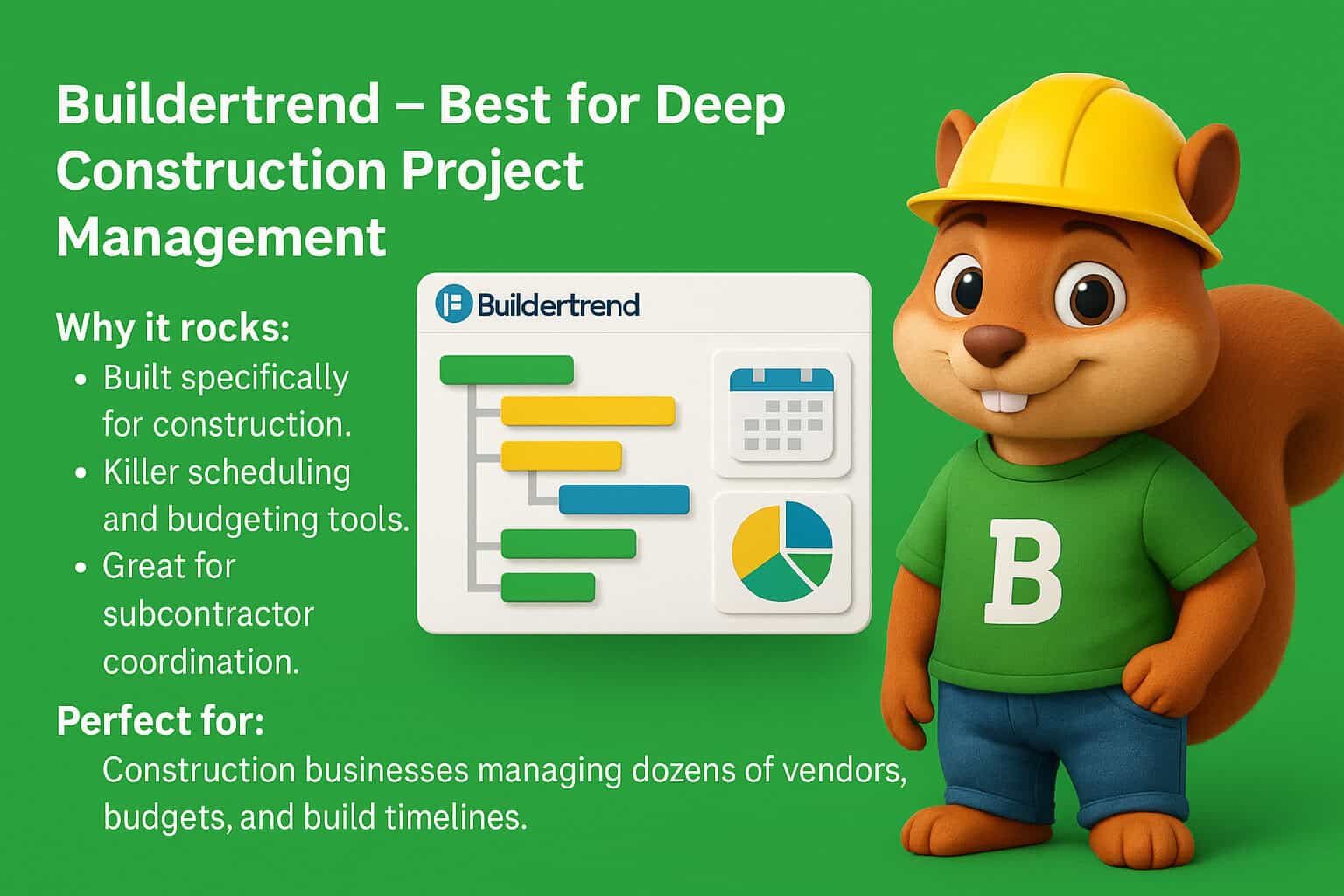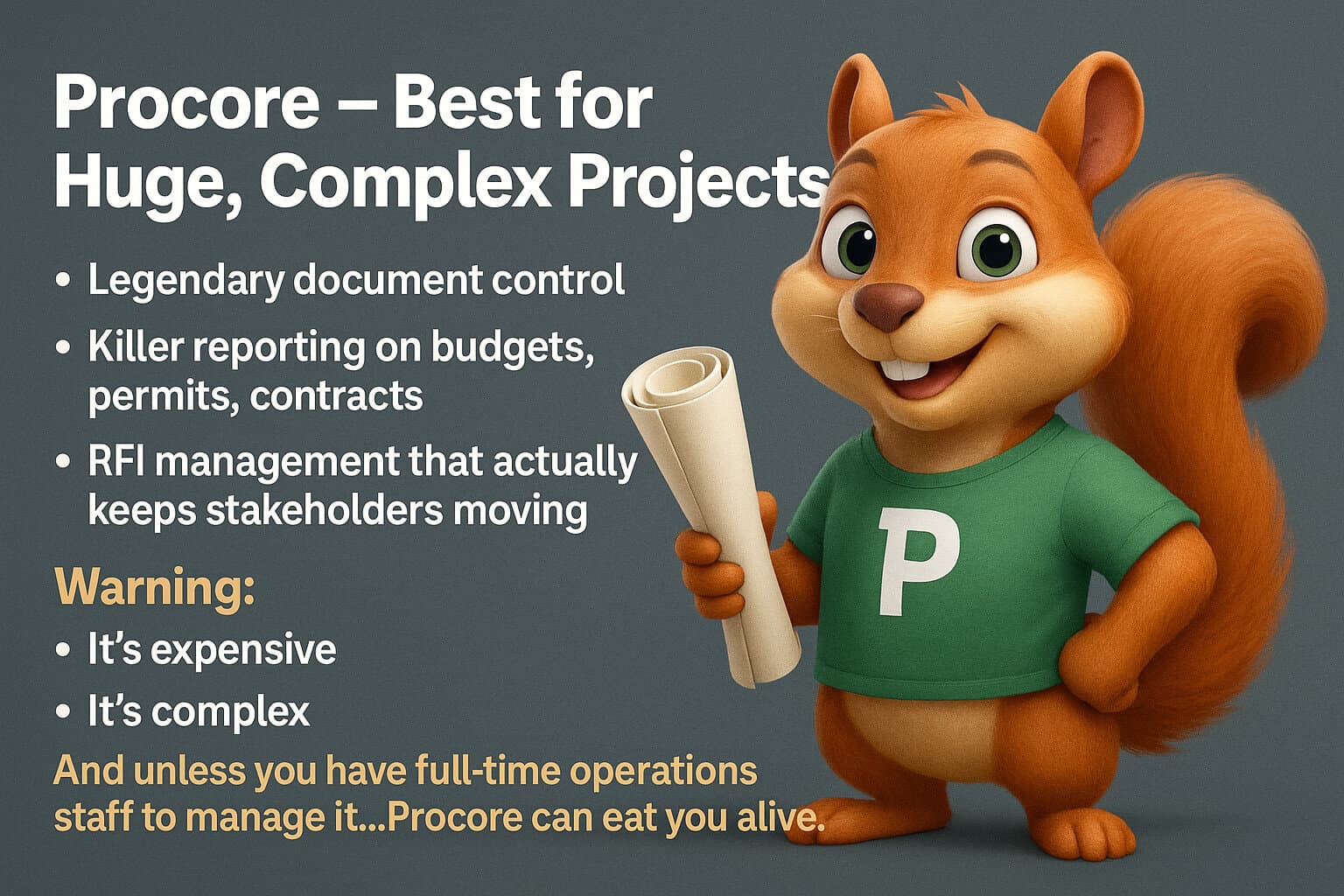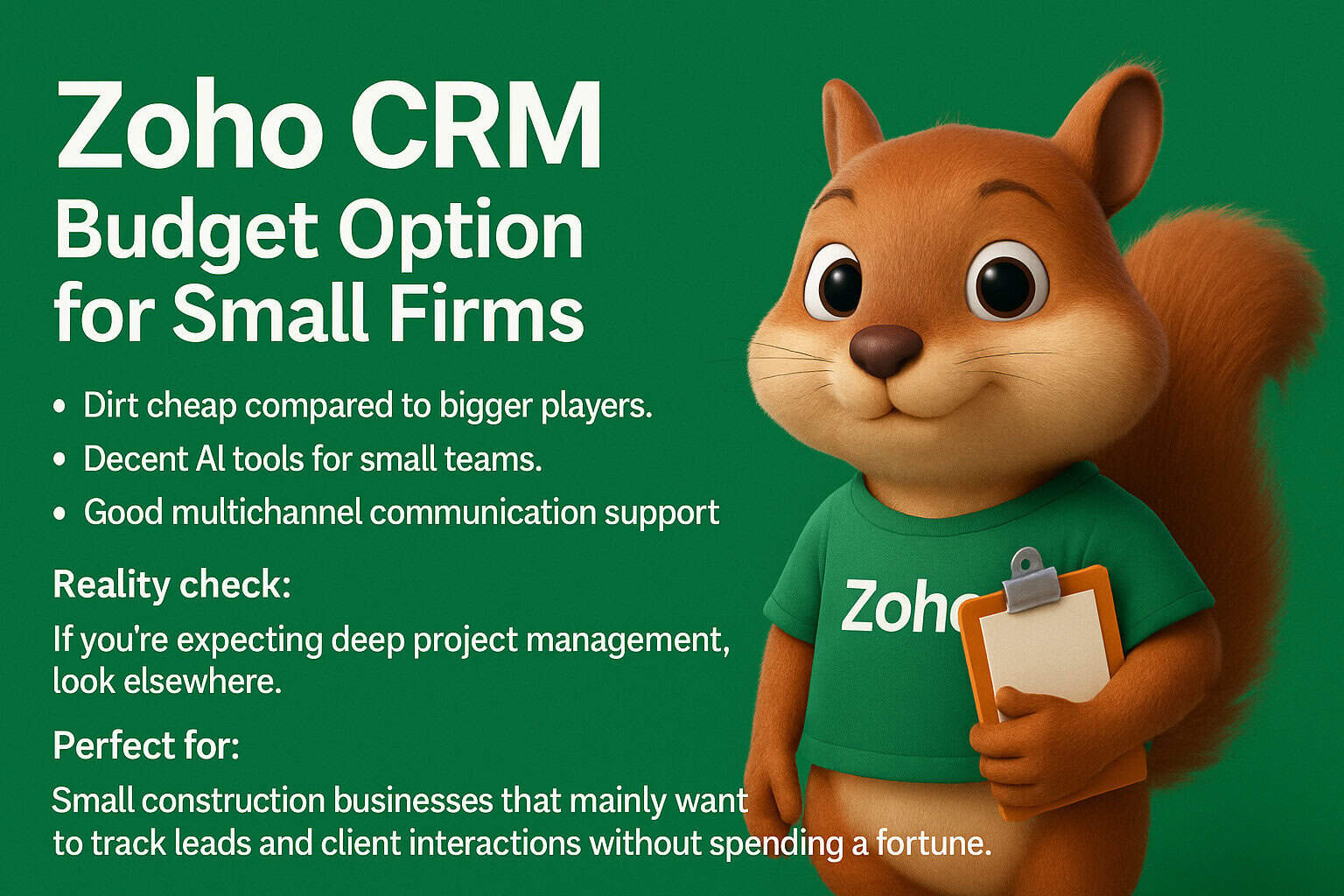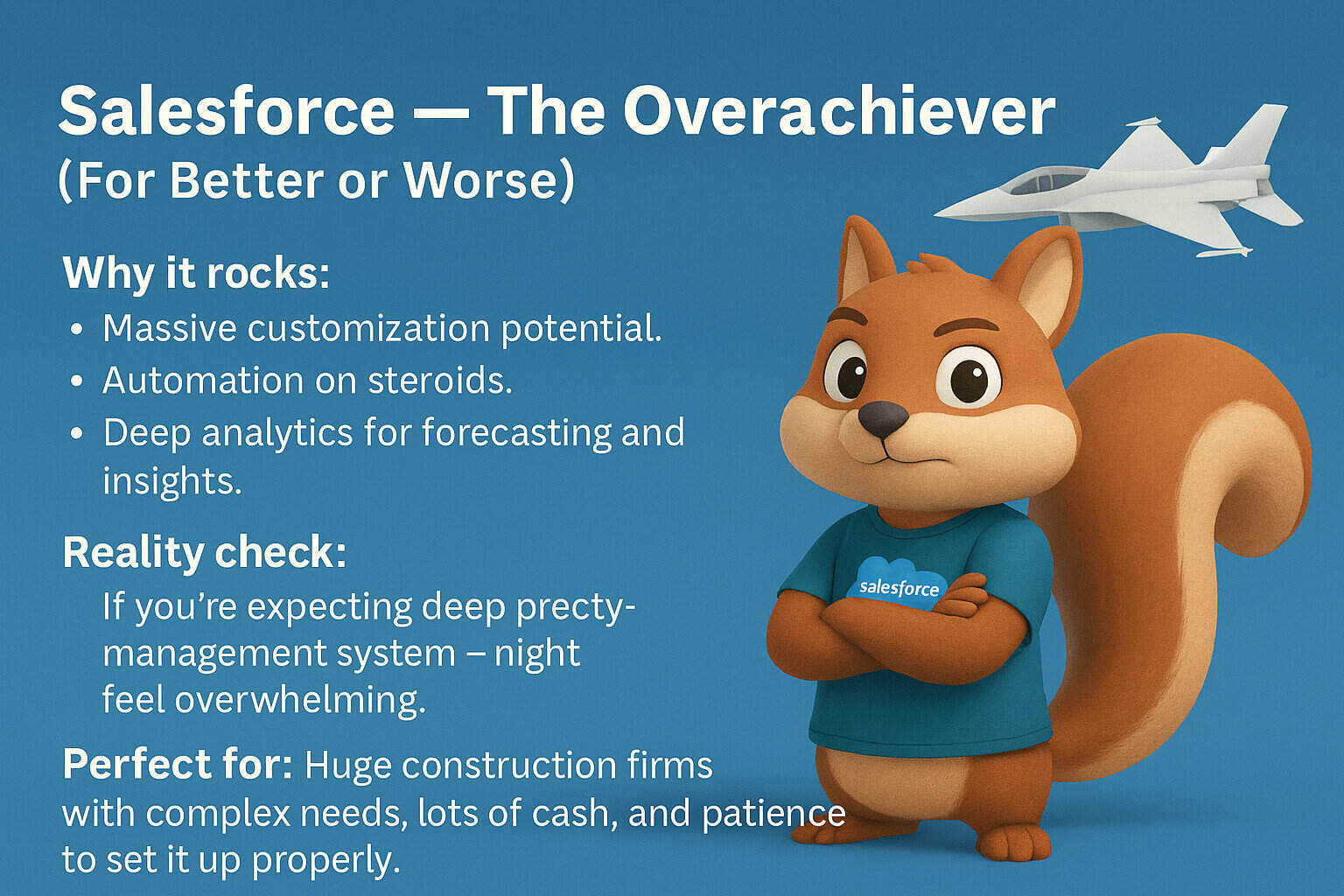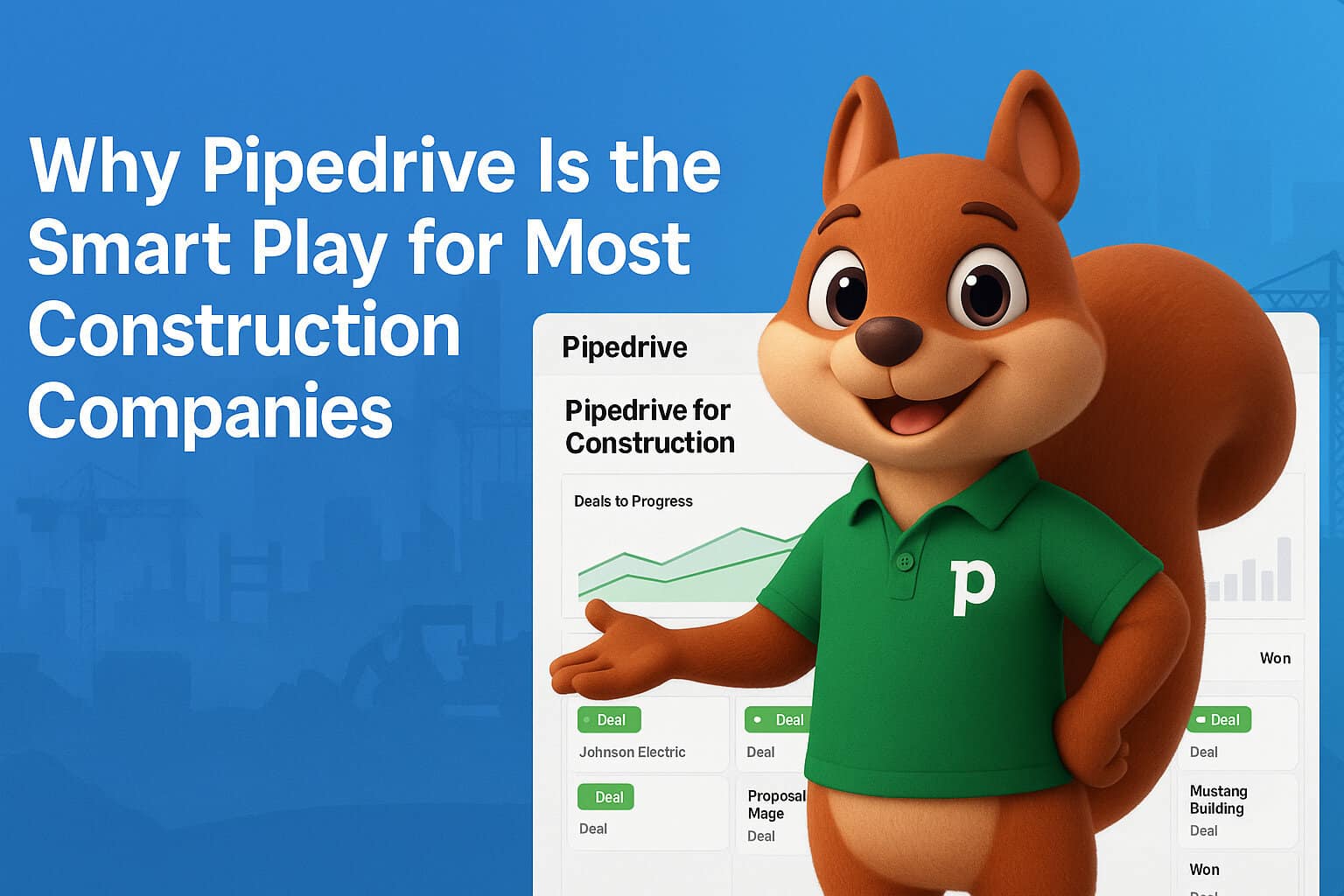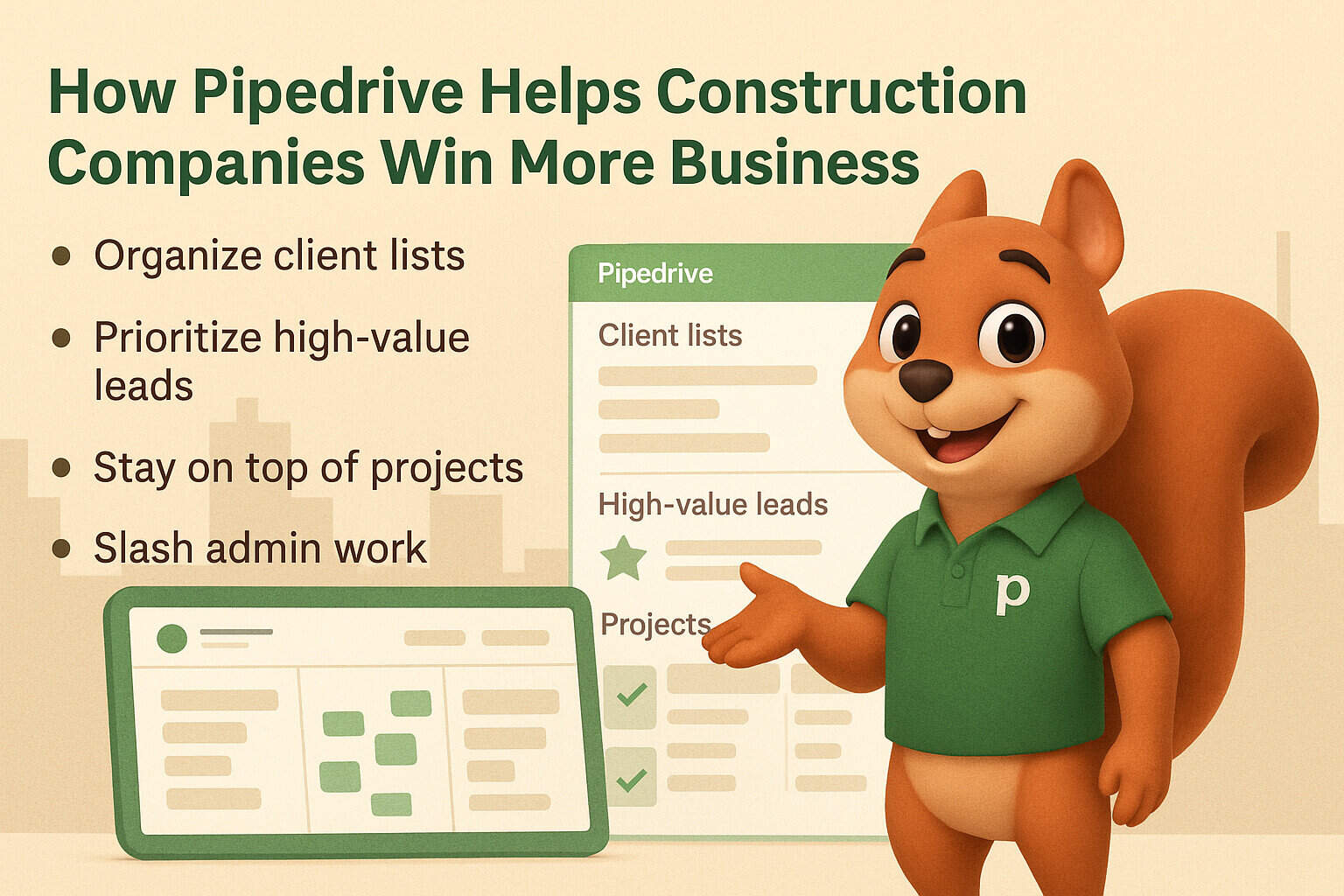Best CRM for Construction Companies: Real-World Review

Running a construction company isn’t for the faint of heart.
You’re managing crews, juggling clients, racing deadlines — and somehow expected to keep track of a thousand tiny moving pieces without losing your mind.
And honestly?
Spreadsheets and sticky notes aren’t cutting it anymore.
That’s where a good CRM (Customer Relationship Management) system steps in.
It’s not just for “sales” — it’s your control tower.
It keeps client relationships healthy, projects organized, and your team actually knowing what’s happening.
But — and this is a big but — not every CRM is built for the crazy, messy world of construction.
Pick the wrong one, and it’ll just be another expensive headache.
Let’s dive into which CRMs actually work for construction companies, and why Pipedrive might just be the best fit if you want fewer problems and more progress.
Why Construction Companies Actually Need a CRM (Even If You Think You Don’t)
Look, you can try to manage everything manually.
Some companies do it for years.
But sooner or later, the cracks start to show.
Here’s where a CRM saves your sanity:
-
Project & Pipeline Tracking
You’ve got 12 projects in motion, 5 new leads, and 3 clients ghosting you.
A CRM helps you see where every job stands — no more “Wait, did we ever send that quote to Johnson Electric?” moments.
-
Task & Workflow Automation
Your crew should be building, not bogged down in admin.
Automating follow-ups, reminders, and basic task assignments frees everyone to actually do their real jobs.
-
Centralized Communication
Texts, emails, calls, smoke signals — it’s a mess if you don’t centralize it.
A CRM gives you one place where all client and subcontractor conversations live. No more “He said she said” disasters.
-
Integrations That Matter
Good CRMs plug into your accounting software, project management tools, even scheduling apps.
Because let’s be real:
You don’t have time to copy-paste everything five times.
-
Mobile Access
When half your team is on a job site and the other half is stuck in traffic, mobile CRM access isn’t optional.
You need updates in real time — not “when I get back to the office.”
The Best 5 CRMs for Construction Companies (Real Talk Comparison)
Not all CRMs are created equal.
Some are perfect fits.
Some are…well, best left alone unless you enjoy migraines.
Let’s break it down:
1. Pipedrive – Best for Keeping Sales and Projects Organized
Why Pipedrive rocks:
-
Simple visual pipelines — drag, drop, done.
-
Solid automation for follow-ups and task assignments.
-
Easy integrations (accounting software, email, scheduling tools).
-
Mobile-friendly for project managers on the move.
Reality check about Pipedrive:
You don’t need a CRM that feels like assembling Ikea furniture blindfolded.
Pipedrive lets you track leads, projects, and client communications without overcomplicating your life.
Pipedrive Perfect for:
Construction companies that want something simple, visual, and actually helpful — not a full-time IT project.
Try Pipedrive CRM with a 45-Day Free Trial and see how it transforms your construction business.
Start optimizing your sales today!
2. Buildertrend – Best for Deep Construction Project Management
Why Buildertrend rocks:
-
Built specifically for construction.
-
Killer scheduling and budgeting tools.
-
Great for subcontractor coordination.
Buildertrend Heads-up:
Buildertrend feels more like “Project Manager in a Box” than a CRM.
If you mainly need sales tracking and client follow-up, it might feel overwhelming.
Buildertrend Perfect for:
Construction businesses managing dozens of vendors, budgets, and build timelines.
3. Procore – Best for Huge, Complex Projects
Why Procore rocks:
-
Legendary document control.
-
Killer reporting on budgets, permits, contracts.
-
RFI management that actually keeps stakeholders moving.
Procore Warning:
- It’s expensive.
- It’s complex.
- And unless you have full-time operations staff to manage it…Procore can eat you alive.
Procore Perfect for:
Large firms running multiple $10M+ projects at once who need military-grade process control.
4. Zoho CRM – Budget Option for Small Firms
Why Zoho CRM rocks:
-
Dirt cheap compared to bigger players.
-
Decent AI tools for small teams.
-
Good multichannel communication support.
Zoho CRM Reality check:
If you’re expecting deep project management, look elsewhere.
Zoho is mostly a good contact/lead management system — not a construction-focused platform.
Zoho CRM Perfect for:
Small construction businesses that mainly want to track leads and client interactions without spending a fortune.
5. Salesforce – The Overachiever (For Better or Worse)
Why Salesforce rocks:
-
Massive customization potential.
-
Automation on steroids.
-
Deep analytics for forecasting and insights.
Reality check Salesforce:
Salesforce is like buying a fighter jet when you need a pickup truck.
Incredible power — if you have the people and money to manage it.
Salesforce Perfect for:
Huge construction firms with complex needs, lots of cash, and patience to set it up properly.
Why Pipedrive Is the Smart Play for Most Construction Companies
At the end of the day, most construction companies need a CRM that checks three boxes:
-
Easy to use
-
Helps you close business faster
-
Keeps projects moving without extra headaches
And that’s why Pipedrive wins for so many teams.
Here’s what sets it apart:
Visual Sales & Project Pipelines
- You’re a builder.
- You think visually.
Pipedrive’s drag-and-drop pipelines let you see every deal, every project, every client status — without digging through reports.
Automation That Actually Helps
- Auto reminders.
- Follow-up sequences.
- Task assignments.
Instead of micromanaging everything, you spend your time where it matters — closing deals and running jobs.
Integrations That Play Nice
Pipedrive connects easily to tools you already use — QuickBooks, Trello, Google Calendar, even your email.
No patchwork systems. No double data entry.
Mobile Access That Just Works
Whether you’re in a truck, on-site, or stuck waiting at the building inspector’s office, you can update deals, check tasks, and reply to clients right from your phone.
Cost That Won’t Break You
CRMs like Salesforce require $10K+ onboarding projects.
Pipedrive?
You can be fully up and running in a day — without needing a second mortgage.
How Pipedrive Helps Construction Companies Win More Business
-
Organize client lists:
Never lose track of a potential job again.
-
Prioritize high-value leads:
Focus on the deals that actually pay your bills.
-
Stay on top of projects:
Know what’s moving forward (and what’s stalling) in real time.
-
Slash admin work:
Let automation handle the small stuff so you can run the big stuff.
Getting Started with Pipedrive
Honestly, getting started is stupid simple:
-
Grab the 45-day free trial (CRM Squirrel’s deal).
-
Customize your sales/project pipelines (takes maybe an hour).
-
Connect QuickBooks, Trello, and Google Calendar if you want smooth syncing.
-
Set up a few basic automations (follow-up emails, task triggers).
-
Start selling and building — without worrying if a deal fell through the cracks.
Ready to Streamline Your Construction Workflow?
Look —
If you’re a huge national builder with hundreds of complex projects, maybe Procore or Salesforce makes sense.
But if you’re a smart construction business looking for:
-
Better lead management
-
Smarter project tracking
-
Less paperwork
-
More closed deals
Pipedrive is the best move you can make without adding another headache to your life.
Build smarter. Close faster. Stress less.
Get started with Pipedrive today.
FAQs About Best CRM for Construction
Why do construction companies need a CRM?
To stop losing leads, organize projects better, automate busywork, and make client communication smoother.
Which CRM is best for small construction firms?
Zoho is a budget pick, but if you want a balance of power and ease, Pipedrive wins hands down.
How does Pipedrive actually help manage sales and projects?
Visual pipelines, easy automation, and real-time mobile access — all built around keeping your deals and jobs on track.
Buildertrend vs. Procore — what’s the difference?
Buildertrend = better for subcontractor and budget management.
Procore = better for document control and huge project reporting.
Is Pipedrive good enough for big firms?
If you’re under $100M/year and focused on staying agile? Yes.
If you’re an enterprise monster? You might eventually outgrow it and want Salesforce or Procore.

